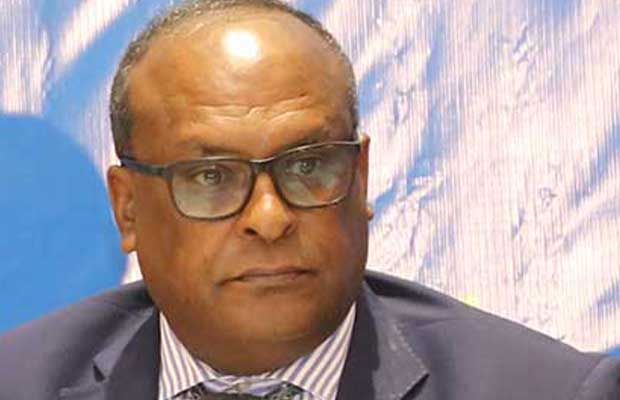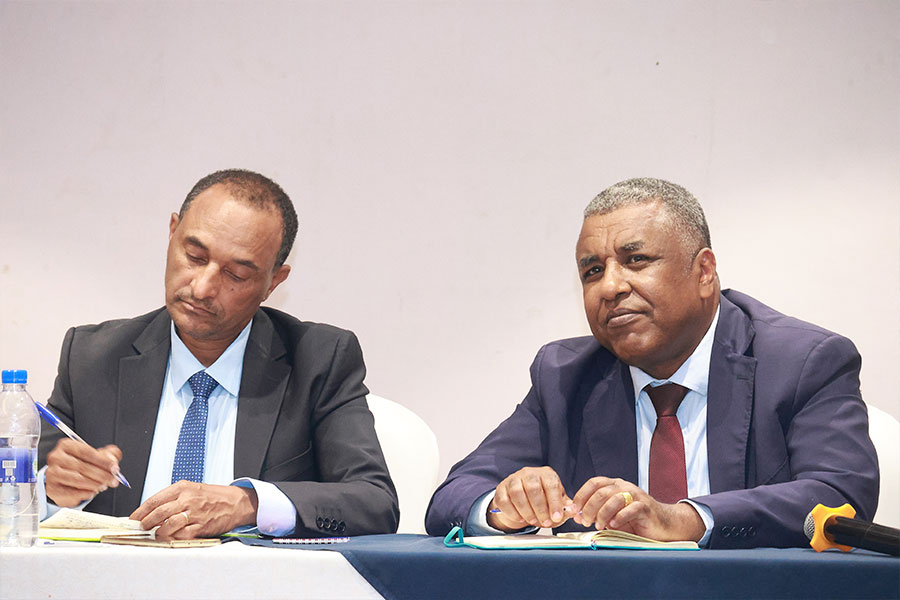
The contrast between what boils outside the trimmed walls of a medical clinic compound in Cherkos and the clean, swept and manicured landscape inside is a jolt of reality that is hard to shake. Inside the gates, a whiff of sage flower scent begins to soothe the nose of a patient that is perennially assaulted by the bucolic smell of what simmers night and day in this botched up metropolitan.
The clinic sits at the end of a short driveway; a brightly-lit structure built more like a bungalow than a villa. Unlike the typical clinics one finds throughout the city, there are no unsightly dirty canvas contraptions, rotted cardboards and rusted corrugated metal barriers leaning about the premise; nor an unkempt waiting rooms fitted with broken furniture. No piles of plastic trash or any sign of cracked and battered windows held together with pieces of tapes.
This is a modern clinic as any found in the Western world. At the front desk, smartly furnished and polished, a patient is greeted by staff and nurses attired in proper shoes and uniforms one expects in a contemporary clinic. Gone are slippers worn with socks, the ill-fitting rubber gloves slipped on one hand and the clattered rooms with dusty cabinets and files strewn about the room.
Here, the attending European doctor stands in the middle of a spotless examination room and greets his patient warmly. He engages the man as if they have infinite time together, asks all the right questions, writes everything down on his pad and conducts the examination on a sanitary examining bed as is customary in any modern clinic.
Not like a clinic run by a local doctor who the patient saw previously. This physician is uncommunicative, superior and unapproachable. He sits stiffly behind a desk wearing a stuffy white coat and invites the man to a rickety chair next to him. Although the examining bed was there, albeit disheveled and with glaring evidence of disrepair and misuse, the client is asked to remove his shirt from where he sits.
Out comes the stethoscope and is pressed against the chest and sides. Then the man is told to scoot over in his chair to have the doctor listen to his back. The abdomen is fingered twice or thrice, and the physician examines the eyes, ears and skin from his distant perch at a quick glance. The examination over, the man is dispatched with a prescription note nary a useful discussion of what might ail him.
In the modern clinic, the European doctor discusses the concerns, outlines the processes and lists the tests that should be conducted. The experience bespeaks of confidence, safety and care that belies the relationship between the clinic and its clients.
The ever-nagging question is if it is possible to run a medical clinic in Cherkos on par with standards met in Zurich or Lausanne, why has that standard eluded a local doctor who operates in the same field?
The most obvious answer would be the lack of money. That is safe territory but not satisfactory to answer the obvious question of why clinics run by local doctors neglect to meet the most basic safety standards in running their medical facilities?
It is particularly vexing with all the talk about growing the private sector when the sector itself fails to size up its opportunity to meet the modern world but instead wallows into mediocracy and carelessness. In Ethiopia, the pet explanation for failures to meet Western standards is that we are too poor, too underdeveloped, too far behind to aspire and achieve what the Europeans have accomplished.
The Ethiopian professional class, the captains of industries, the leaders of lofty institutions and owners of small and large enterprises are all implicit in lowering the bar in this regard. For progress and modernity to take root, this atmosphere of resignation and laxity in attitudes must be expunged. The private sector cannot sit content, pleased with itself when there is much to be done. While the government stumbles to find its way to lead, the private sector cowers behind it – a scenario in which both vie for a position of indifference and mediocracy.
The modern clinic in Cherkos - clean, polished, orderly and up to snuff is the redemption; the beacon of hope that modernisation on equal level with Western Europeans can be achieved in Ethiopia. Indeed, there are islands of possibilities here and there, powerful and uplifting examples where the efforts of managers and owners have transformed an enterprise into an example of what is possible when people put their minds into it.
Somewhere over these highland plateaus and distant valleys lies the Ethiopia of our hopes and dreams where the streets are paved, the sewers drained, the trash picked, the rivers filled with life, the children properly schooled, the citizens well cared for, and where the people wake up each morning knowing that everyone is involved and working to keep these dreams and hopes alive.
What is the use of being exposed then to modernity, to being educated, of wearing the scarlet robes of scholars, or citing one's academic accolades and distinctions when the professional class itself flounders in stagnation and backwardness? Why not aspire to raise the bar in all our engagements and practices?
The enlightened class should be in the vanguard, at pole position, cheering on its underlings and acolytes to breach the bar and reach for excellence.
We must envision an Ethiopia managed and run by a progressive and skilled class of professionals; a nation concerned about its natural resources, its environment, the farmlands, the lakes and, of course, its cultures and traditions. In the final analysis, we reach modernity only when we have lifted up our citizens and improved their quality of life.
PUBLISHED ON
Feb 09,2019 [ VOL
19 , NO
980]


Radar | Dec 24,2022

Exclusive Interviews | Jan 05,2020

Radar | May 18,2024

Fortune News | Oct 12,2019

Radar | Sep 24,2022

Radar |

Covid-19 | Apr 08,2020

Commentaries | Nov 30,2019

Editorial | Sep 02,2023

Exclusive Interviews | Sep 07,2025

Dec 22 , 2024 . By TIZITA SHEWAFERAW
Charged with transforming colossal state-owned enterprises into modern and competitiv...

Aug 18 , 2024 . By AKSAH ITALO
Although predictable Yonas Zerihun's job in the ride-hailing service is not immune to...

Jul 28 , 2024 . By TIZITA SHEWAFERAW
Unhabitual, perhaps too many, Samuel Gebreyohannes, 38, used to occasionally enjoy a couple of beers at breakfast. However, he recently swit...

Jul 13 , 2024 . By AKSAH ITALO
Investors who rely on tractors, trucks, and field vehicles for commuting, transporting commodities, and f...

Oct 11 , 2025
Ladislas Farago, a roving Associated Press (AP) correspondent, arrived in Ethiopia in...

Oct 4 , 2025
Eyob Tekalegn (PhD) had been in the Governor's chair for only weeks when, on Septembe...

Sep 27 , 2025
Four years into an experiment with “shock therapy” in education, the national moo...

Sep 20 , 2025
Getachew Reda's return to the national stage was always going to stir attention. Once...